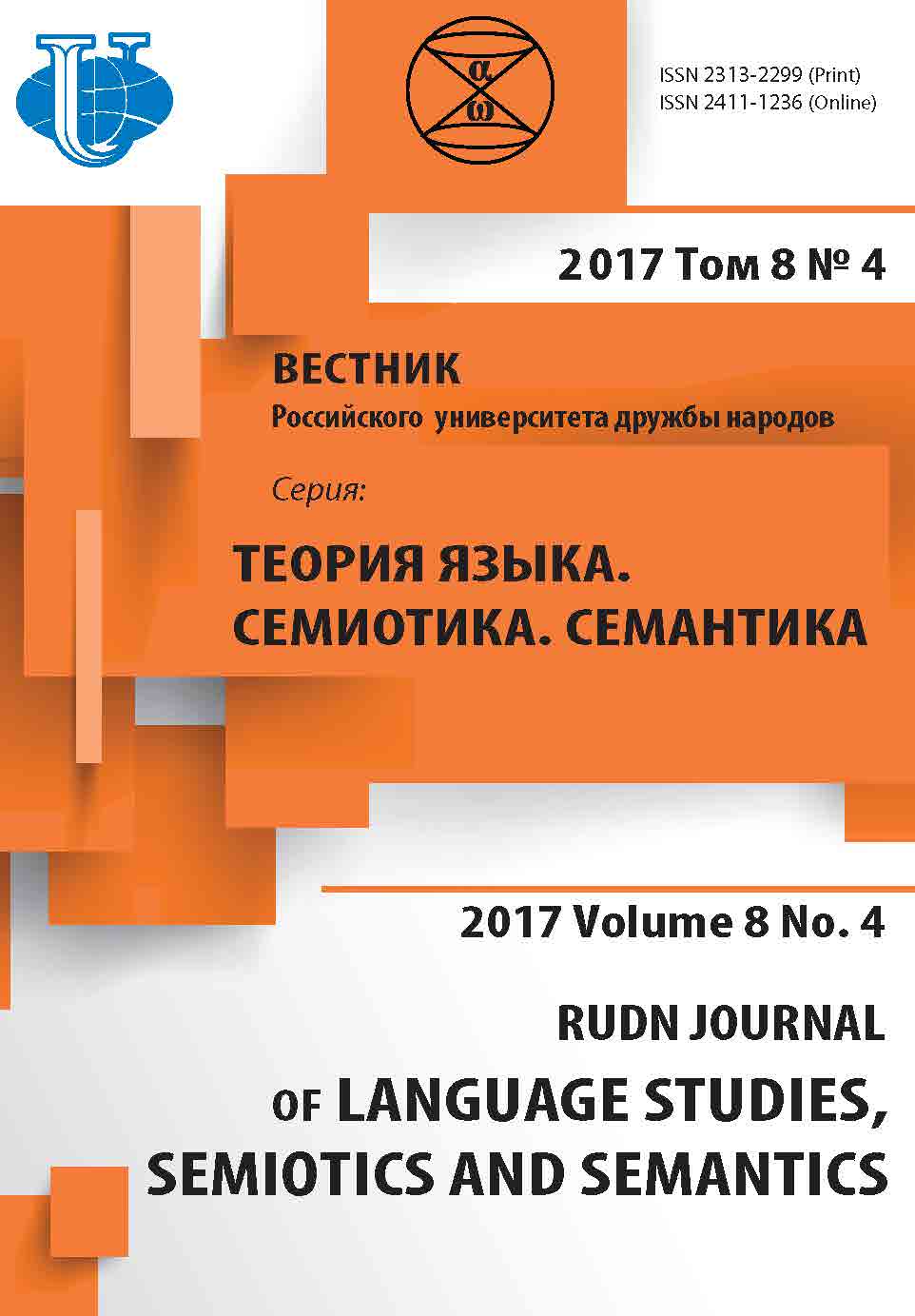CRITERIA FOR TYPOLOGY OF CONCEPTS IN THE LEGAL DISCOURSE
- Authors: Fedulova M.N1
-
Affiliations:
- Military University
- Issue: Vol 8, No 4 (2017)
- Pages: 873-883
- Section: ARTICLES
- URL: https://journals.rudn.ru/semiotics-semantics/article/view/17965
- DOI: https://doi.org/10.22363/2313-2299-2017-8-4-873-883
- ID: 17965
Cite item
Full Text
Abstract
The public relations are based on a particular system of values which is brought to the society through different conceptual spheres articulated by its own specific semantic area of language. The author says that the semantic area of language and the semantic structure of legal discourse are the reflection of the conceptual sphere of law and can be considered as a criteria in the conceptual analyze of legal language. The problem is to choose a correct criteria for typology of concepts in the legal discourse as a special discourse. Taking into consideration that the legal discourse is a social regulator the cumulative component that depends on a correct lexical unit is very important. The cumulative component is an in-formative intensity of the word semantics that is very important for regulation of public relations. The con-ceptual sphere of the legal discourse is characterized by some specific features. The article says that in addi-tion to the common ontological criteria characterizing any discourse the criteria of semantic intensity can be a base of typology of concepts in the legal discourse. The criteria of semantic intensity, concept volume can be seen in direct (terminological) and in indirect (narrative) forms of expressive repre-sentation in any text.
About the authors
Maria N Fedulova
Military University
Author for correspondence.
Email: mfedulova@mail.ru
Fedulova Maria Nickolaevna, Candidate to Doctor of Philology, PhD in law, PhD in philology; Scientific Interests: theory of language, discourse, legal discourse
14, Bolshaya-Sadovaya str., Moscow, Russia, 123001References
- Alekseev, S.S. (1983). Law is an institutional social entity In The issues of theory of state and law. Saratov. pp. 7—12. (In Russ.).
- Bakulina, S.S. (2012). Conceptual sphere as a factor of a humanization of culture [dissertation]. Saint-Peterburg. URL: www.dissercat.com. (Accesed: 20.9.2017 ). (In Russ.).
- Karasik, I.V. (2004). Linguistic сircle: personality, concepts, discourse. Moscow: Gnoszis. (In Russ.).
- Likhachyov, D.S. (1993). Conceptual sphere of the Russian language. The News of the Russian Academy of science, 1, SLYA 1993. pp. 3—9. (In Russ.).
- Olyanich, A.V. (2007). Presentational theory of discourse: Monography. Moscow: Gnozis. (In Russ.).
- Polonskyi, A.V. (2010). Discourse is as an objectification of conscience (introduction into the issue) In The problematic sphere of discourse studies: the digest of scientific articles, A.V. Polonskyi (Ed.). Belgorod: IPP “Polyterra”, pp. 57—67. (In Russ.).
- Popper, K. (1983). The logic and growth of scientific knowledge edited by V.N. Sadovskyi Moscow: Publishing house Progress.
- Potebnya, A.A. (1999). The collected works. Idea and language. Moscow: Labyrinth. (In Russ.).
- Popova, T.G. (2003). National-cultural semantics of language and cognitive-socio-communicative aspects (based on the materials of the English, German and Russian languages)]: Monography. Moscow: Publishing house МGОU «Public teacher». (In Russ.).
- Tikhomirov, U.A. (1999). Law: national, international, comparative]. State and law, no 8. Moscow. pp. 5—12. (In Russ.).
- Tikhomirova, L.V. & Tikhomirov, M.U. (Еd.) (1997). Legal encyclopedia. Moscow. (In Russ.).
Supplementary files












